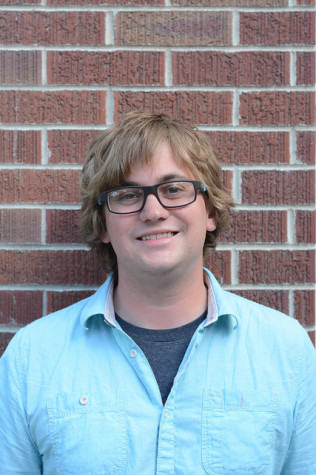Professors take on winter in Olympia to advocate for Eastern
EWU professors make presence a priority at the state capitol
December 4, 2014
Every winter a council at EWU selects a faculty member to send to Olympia to work with state legislators to raise awareness about issues students deal with, such as the price of tuition.
According to Anthony Flinn, (Ph.D) an English professor at EWU who used to participate in the trips to Olympia, the faculty member who is selected needs to live in Olympia during the winter quarter.
“What I had to do for the two years that I was there was live there in Olympia during the legislative sessions. We did it because it had to be done,” said Flinn.
The delegate from EWU has to live in Olympia because, “We need larger pressure and it has to be constant. It’s an ongoing relationship, an ongoing development of legislative understanding of what higher education needs and how it affects people like you who do not want to die under student loans,” said Flinn.
A project on student debt ran by the Institute for College Access & Success, found, on average, students are in debt by $24,418 when they graduate from college in Washington.
Having an EWU faculty member live in Olympia also helps develop a comfort level between legislators and EWU, according to Flinn.
“They know us, they trust us, they can turn to us for information as they need it to promote their goals,” said Flinn. “We have to make sure that a few rich donors or Microsoft and so on aren’t the only people they ever talk to.”
Patty Chantrill, Ph.D., an associate professor of communication at EWU who is currently involved in the project to raise awareness about higher education in Olympia, the process involves, “Having conversations, making appointments, and then going in and having conversations with legislators about what we think matters.”
To make conversations with legislators easier, “We find allies,” said Chantrill. “We find people who ‘get it.’ They understand that higher education benefits the state, that by investing in students and their education we are actually helping the state of Washington. We work against those people who think it is private gain only.”
Flinn said, “[Raising awareness in Olympia] is important all year round because a lot of bills are developed during the intersession.”
Mostly, “[Students] want to make sure the university is funded so you can get the courses you need to graduate in a timely way, so that faculty are properly paid so it’s not one faculty member per 600 so you can get faculty attention for what you need to further your academic career,” said Flinn.
Chantrill said there is reason to worry looking ahead.
“We’re going to have to be dealing with tremendous budget issues that are pretty scary because they are born of some of the constraints on legislators after years and years of not fully funding K-12 and now they’re being called to task,” said Chantrill.
Addressing the main priority for Eastern, “[We’re] trying to keep higher education on their minds and on their docket of things to do. It’s going to be very difficult,” said Chantrill. “We’ll get whatever’s left so it’s really important for us to protect low tuition.”
Although EWU is one of the furthest colleges away from Olympia, Chantrill said, “Eastern Washington University still has a strong voice in Olympia when the laws are being made so it’s essential that we get there.”
As a result of EWU having a presence in Olympia, Eastern has strengthened its ties with other universities in the state.
Chantrill said, “If we can get six very different institutions with very different campus ethos to agree to a particular issue then we’ve done something enormous. It’s hard to do and when it happens it makes every institution stronger.
“We work together with the administration to advance a brighter future for higher education, and we won’t give up until we have that,” said Chantrill.
Up next for EWU and other universities in Washington is to get to know the legislators who were just recently elected earlier this November.
“What happens immediately next is that since the election is over, we’re developing a new agenda with new players and in the long term what happens next is that we make higher education in the state of Washington the best the nation has to offer at a price that relieves students from having to pay for their education so the state can benefit,” said Chantrill.








